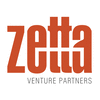Or listen in your favorite podcast app
Apple Podcasts / Google Podcasts / Stitcher
Jocelyn Goldfein (LinkedIn, Twitter) is a true IT Visionary. Having worked at VMware and Facebook in the early days of both, and now as Managing Director at Zetta Venture Partners, Jocelyn has played a key role in the development of technology as we know it.
In part one of their interview, Jocelyn and Ian discuss the rise of the computer sciences industry, investing in start-ups, and the role artificial intelligence and cloud technology will play in businesses moving forward. Plus, Jocelyn shares her experiences working closely with Mark Zuckerberg and explains what it was like riding the VMware rocketship right as it caught fire.
Key Takeaways:
Why Zetta is investing in start-ups harnessing the power of big data, A.I. and machine learning [1:30]:
At Zetta, Jocelyn and her partners are investing in companies that are attempting to change the world primarily through the use of artificial intelligence. A.I. is becoming more and more essential in a number of key areas of business. Start-ups that can use A.I. effectively to collect and use data will be the ones that create lasting change.
“To apply A.I. to a problem you need data, and that data needs to be about something.”
“You have to augment humans with A.I.”
“We only invest in companies solving business problems.”
The early days of Facebook [11:30] and VM Ware [36:00]:
Jocelyn joined Facebook in 2010 and the amount of data being brought in during those massive growth years was unprecedented. The arrival of cloud infrastructure made it fast, cheap and easy to amass enough data to train machine learning models. Primarily, Facebook was using A.I. to optimize ads, organize the newsfeed, and create a search function within its site. While at Facebook, Jocelyn worked closely with Mark Zuckerberg, and she was surprised at how involved he was in the product design.
Prior to joining Facebook, Jocelyn worked at VMware. She joined in 2003, right when the company was taking off. It was a lesson in how having great success doesn’t mean you work less; it means you work more, just with more people and a bigger budget.
“Facebook is where I cut my teeth with modern techniques in machine learning and A.I.”
“The nature of machine learning is that it compounds. With every click, with every like, with every comment, you’re sending more training data back to the model to make it more and more accurate.”
How CIOs and CTOs should think about A.I. and machine learning [18:10]:
When you are a CIO or a CTO, you have a lot of responsibility on your shoulders. Much of your job is achieving business goals and making thoughtful decisions. As such, a CIO’s or CTO’s focus needs to be on the things that truly matter to their businesses. A.I. is an attempt to optimize something. Therefore, it usually ties very directly to business goals and directives. For that reason, CIOs and CTOs would be smart to pay attention to the space.
“Sometimes the latest cool tech is just a hobby, not something you can take time away from achieving business targets to pay attention to.”
“A lot of people think A.I. is synonymous with automation and job loss. But what I have seen from our customers and people who are adopting it, it’s hardly ever because they’re saying, ‘I want to fire these people,’ or, ‘These people are too expensive for me.’ That is not a motivation for people. Usually, it’s because they have a critical problem to solve they can’t otherwise solve.”
Horizontal data and the levels of A.I. use [23:50]:
When you feed A.I. enough data, the possibilities are nearly endless. But collecting horizontal data means that you are collecting all kinds of data, not amassing a critical mass of useful data that is about a certain problem or task. If the goal is to run efficient, lean businesses, then using data the right way is key. When used correctly, artificial intelligence can make that happen. A.I. is able to describe and classify curated information that humans can act on. There is another next level of A.I. that is predictive, which helps humans become more accurate and better at their jobs. At the next level, you may be able to train a model to be prescriptive and tell you what you should do. But even in those cases, it’s important to have a human being in the loop who knows things the computer model does not. The interesting and exciting part of that ladder of levels is that it’s not a ladder everyone necessarily has to climb. Certain businesses only need descriptive, other predictive and so on.
The current state of cloud technology and how it could be predictive of the future of A.I. [34:00]:
Cloud offers freedom to CIOs and CTOs because they do not have to worry about building the same kind of infrastructure in-house. A.I. could work in a similar way in that it can free up other resources and decentralize pieces enough so that human resources can be put to work on more valuable problems.
“It’s trite at this point to say, ‘cloud is the future.’ I think cloud is the present.”
“What makes it a win is if you’re able to take the freed up resources and do more to achieve greater results.”
Fun fact: Zetta is short for zettabyte, which is one trillion gigabytes.




